Search
Creative Commons and University of Nebraska at Omaha Partner on a Microcredential Course
by Jennryn Wetzler, Craig Finlay CC Certificate, Open Education post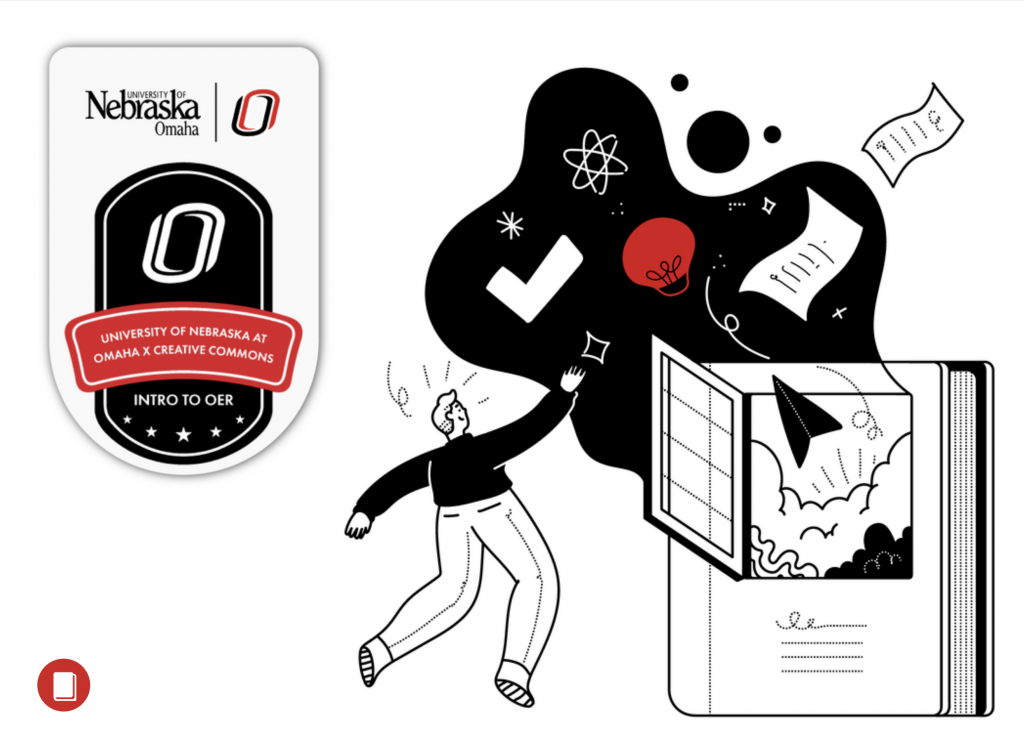
Creative Commons is proud to announce the launch of “Introduction to Open Educational Resources,” our first professional development microcredential course and partnership with the University of Nebraska at Omaha, commencing on 31 May. This microcredential pilot started with one CC Certificate alumnus’s enthusiasm for open education. Craig Finlay, OER and STEM Librarian at the University…
More California Community Colleges Get CC Certified!
by Shanna Hollich, Jennryn Wetzler CC Certificate, Events, Open Education post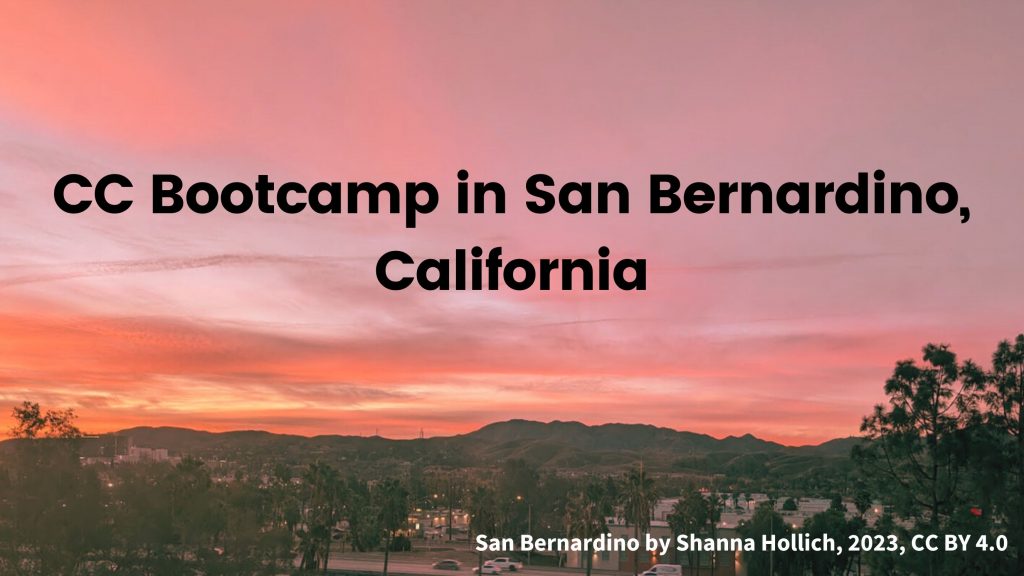
This December, Creative Commons led a CC Certificate Bootcamp, or condensed Certificate training, for faculty and staff from 16 different California Community Colleges implementing Zero Textbook Cost (ZTC) degree programs. This marked the second CC Bootcamp for California Community Colleges after the California legislature invested $115 million to expand ZTC degrees and the use of…
CC Responds to the United States Copyright Office Notice of Inquiry on Copyright and Artificial Intelligence
by Creative Commons Better Internet, Copyright, Licenses & Tools, Technology post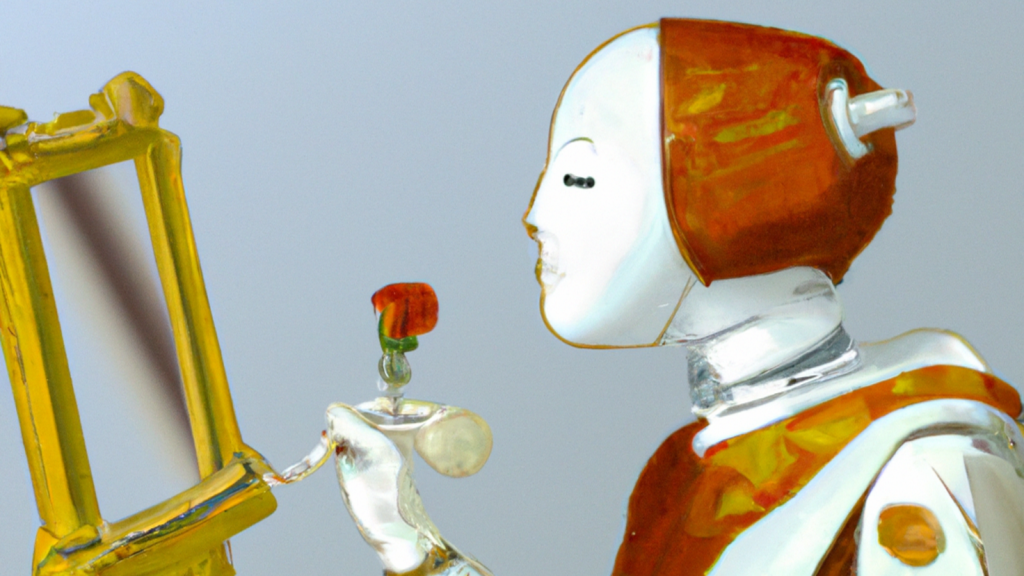 Detail from “AI Outputs” by CC0.
Detail from “AI Outputs” by CC0.
In August, the United States Copyright Office issued a Notice of Inquiry seeking public responses to 34 questions (and several sub-questions) about the intersection of copyright law and artificial intelligence. The comment period closed on 30 October with over 10,000 individuals and organizations responding, representing a broad spectrum of interests on how copyright should apply in relation to generative AI. CC joined in the conversation to provide our own thoughts on copyright and AI to the copyright office.
Understanding CC Licenses and Generative AI
by Kat Walsh Better Internet, Licenses & Tools, Open Creativity, Technology post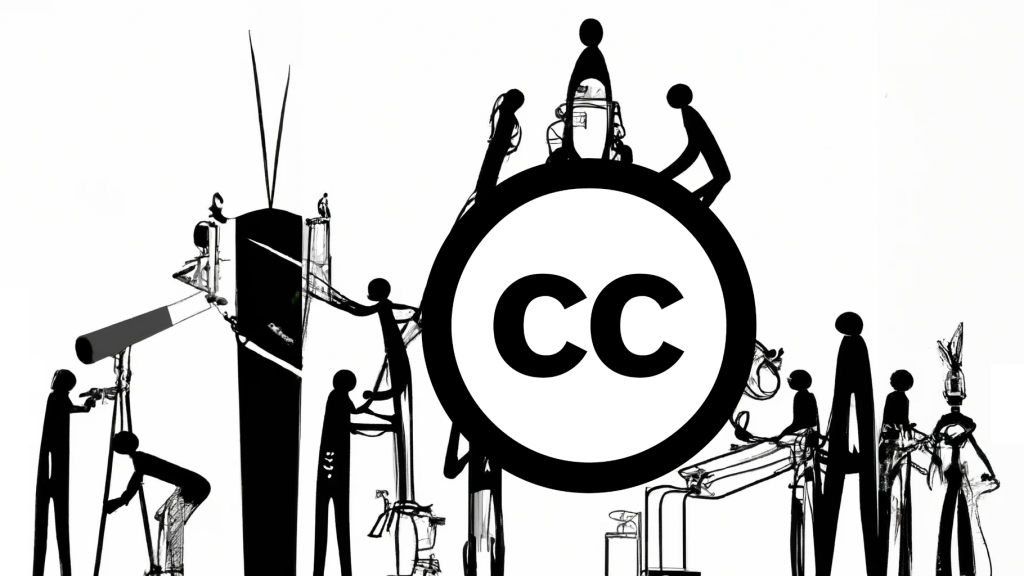 “CC Icon Statue” by Creative Commons, generated in part by the DALL-E 2 AI platform. CC dedicates any rights it holds to this image to the public domain via CC0.
“CC Icon Statue” by Creative Commons, generated in part by the DALL-E 2 AI platform. CC dedicates any rights it holds to this image to the public domain via CC0.
Many wonder what role CC licenses, and CC as an organization, can and should play in the future of generative AI. The legal and ethical uncertainty over using copyrighted inputs for training, the uncertainty over the legal status and best practices around works produced by generative AI, and the implications for this technology on the…
A look at CC’s Open Culture Roundtable in Lisbon
by Brigitte Vézina Open Culture post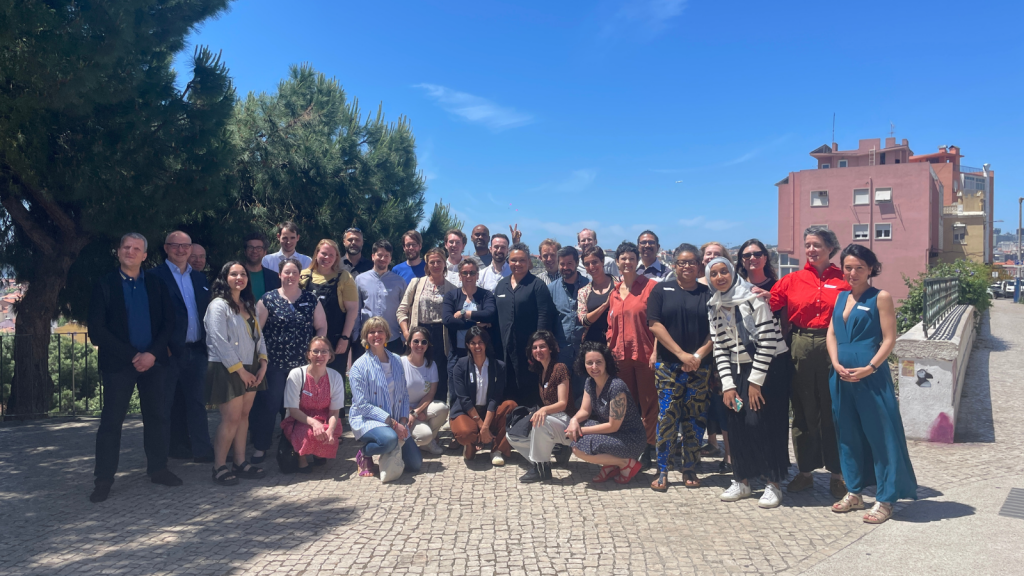
As part of our Open Culture Program, we at Creative Commons (CC) are exploring avenues to build momentum towards a UNESCO Recommendation on Open Culture. On 11 May, 2023, we hosted our first in-person Open Culture event, in Lisbon, Portugal. In this blog post, we look back at the day’s highlights and map out next…
Everything might be OK! Warhol v. Goldsmith
by Kat Walsh, Stephen Wolfson Copyright post “Orange Prince” by Andy Warhol.
“Orange Prince” by Andy Warhol.
The United States Supreme Court released its opinion today in Andy Warhol Foundation v. Goldsmith. While it’s hard to predict the full ramifications of this decision at this point, our initial opinion is that this decision is not ideal, but also not the death knell for transformative fair use that many feared it could have…
Style, Copyright, and Generative AI Part 2: Vicarious Liability
by Stephen Wolfson Better Internet, Licenses & Tools, Open Creativity, Technology post
In my last blog post, I looked at whether copyright protects artistic style, particularly in the context of generative AI (GAI) art tools like Stable Diffusion and Midjourney. However, in the class action litigation against Stable Diffusion and Midjourney, the plaintiffs are not only concerned that people can use the GAI tools to produce works…
The Complex World of Style, Copyright, and Generative AI
by Stephen Wolfson Better Internet, Licenses & Tools, Open Creativity, Technology post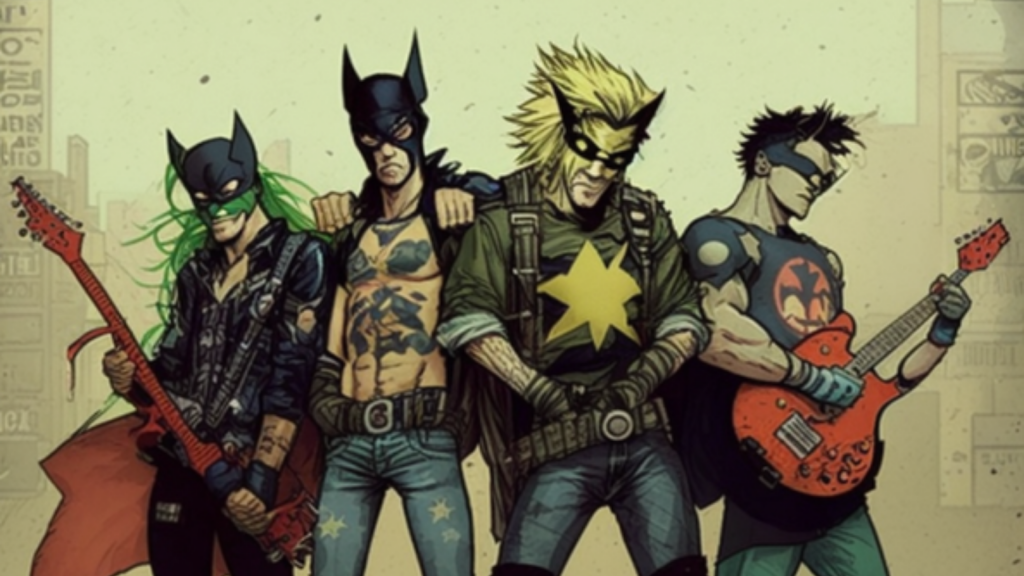 “Grunge Heroes” by Stephen Wolfson for Creative Commons was generated by the Midjourney AI platform with the text prompt “a grunge band from the 1990s made up of superheroes.” CC dedicates any rights it holds to the image to the public domain via CC0.
“Grunge Heroes” by Stephen Wolfson for Creative Commons was generated by the Midjourney AI platform with the text prompt “a grunge band from the 1990s made up of superheroes.” CC dedicates any rights it holds to the image to the public domain via CC0.
In my previous posts on generative AI, I discussed fair use and AI training data, copyright over AI outputs, and a recent U.S. Copyright Office decision on registration for a work produced by generative AI. In the next posts in our series, I will look at claims (exemplified in a recent case against Stable Diffusion…
CC Welcomes Adoption of AIDA
by Creative Commons Copyright post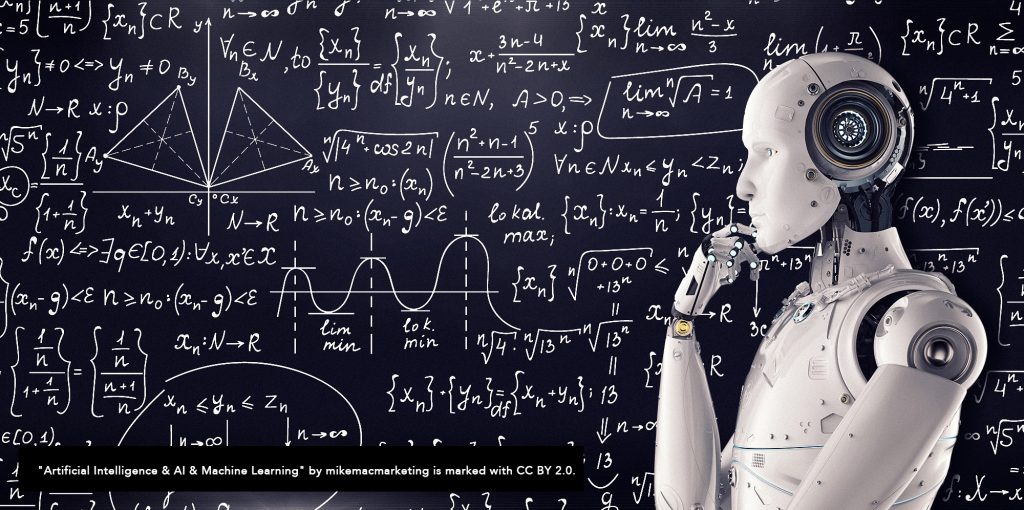
CC welcomes the adoption of this comprehensive report by the AIDA special committee with strong, cross-party support. On Tuesday, the European Parliament’s (EU) Special Committee on Artificial Intelligence in a Digital Age (AIDA) adopted its final recommendations for a Roadmap, laying the groundwork through 2030. This Roadmap concludes that artificial intelligence (AI) has enormous technological…
Statement of Enforcement Principles
pageCreative Commons licenses are copyright licenses, enforceable by law. While we believe that it’s important to respect the terms of CC licenses, enforcement of the licenses should be a way of making sure that creators are treated fairly, not a scheme to trap well-meaning reusers who would be willing to correct errors. If users are…